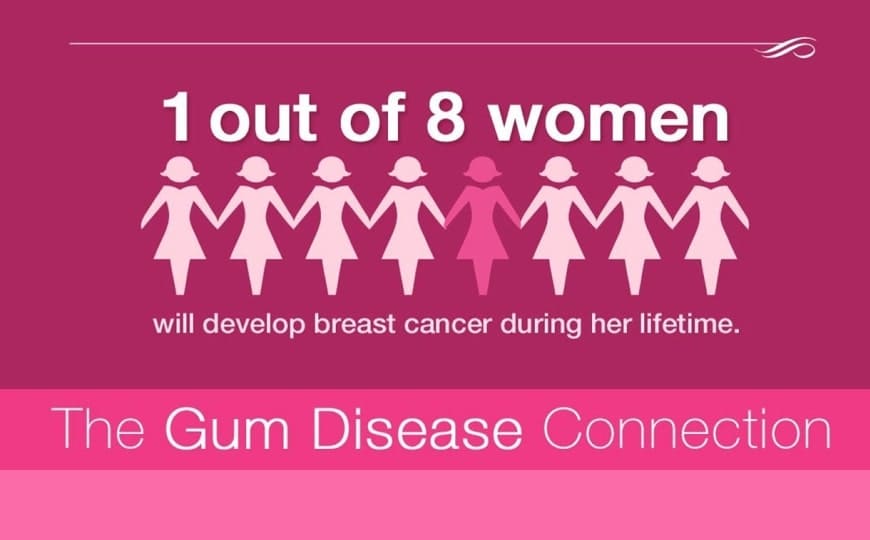According to the Journal of Breast Cancer Research and Treatment, you maybe 11 times more likely to develop breast cancer if you have poor oral health or gum disease.
A survey of 3,273 people discovered that individuals with chronic gum disease had a higher occurrence of breast cancer.
Gum disease has been linked to several general health chronic illnesses, including pneumonia, prostate cancer, stroke, heart disease, problem pregnancy, diabetes, and breast cancer.
Inflammation: The Warning Sign Not to be Ignored
The first sign of gum disease is inflammation – your gums appear slightly red, tender, and may even bleed when you brush or floss.
The main cause of inflammation is bacteria that form a film called plaque and stick to the gum and teeth surfaces.
As the inflammation worsens, the disease affects the destruction of the gums and eventually bone.
This is why dental visits are very important to monitor the health and condition of your teeth and gums.
How does breast cancer treatment(s) affect and Oral health?
Chemotherapy and radiation may be used to kill or slow breast cancer cells by interfering with the growth and multiplication of cells.
If chemotherapy or radiation is prescribed as part of treatment for breast cancer, side effects can be severe and include:
- Mucositis, a severe form of inflammation of the mouth.
- Increase the risk of infection in the mouth. If the drug suppresses white cells, which normally protect against infection, deep cleanings, and other invasive procedures such as tooth extraction can result in infection.
- Difficulty in swallowing.
- Taste alterations ranging from unpleasant to tasteless.
- Due to dry mouth, difficulty with speech, and eating.
- Oral yeast infection from the fungus candida.
- Poor nutrition due to difficulties in eating, dry mouth, or loss of taste.
- Deep aching and burning pain that mimics toothache.
How to Minimize Side Effects
Preexisting or untreated oral disease can complicate cancer treatment.
This is one reason to make sure you visit your dentist at least one month before beginning cancer treatment because of chemotherapy and radiation target certain types of cells that regenerate quickly.
Hence your mouth will be susceptible to damage.
In addition minimize bacterial plaque buildup by practicing good oral hygiene by:
- Brushing and flossing daily
- Use only alcohol-free mouthwash.
- Avoid dental treatment for a week after chemotherapy.
- Chew gum with Xylitol.
- If you wear dentures, make sure you keep them clean and that they fit well. Make sure to take them out at night.

